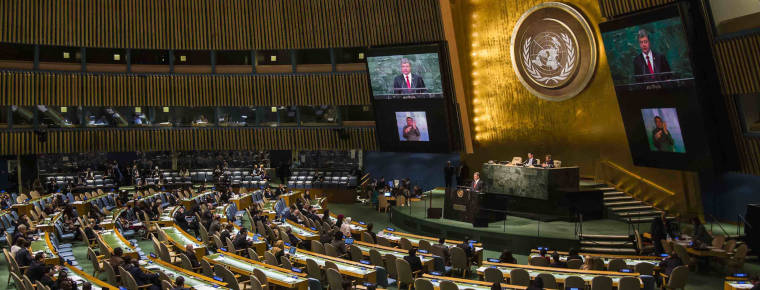 Pic: Shutterstock
Pic: Shutterstock
Rights progress ‘falling short’, says IHREC
The Irish Human Rights and Equality Commission (IHREC) has made several recommendations to the Government in a submission to a United Nations (UN) body.
They cover areas such as climate change, taxation, health, and housing – including appropriate accommodation for Travellers and international-protection applicants.
The submission, to the UN Human Rights Council, covers the implementation of recommendations made during a review of Ireland’s human-rights policies in 2021.
Under what is known as the UPR (universal periodic review) process, states are assessed by other UN countries on their human-rights record across a broad range of areas.
‘Limitations’
While IHREC praises the State on its preparation of a mid-term report, it says that there are “significant limitations” to its approach, “which focuses on policy and legislative outputs, rather than measuring outcomes and capturing the lived experience of individuals and communities”.
The commission says that, while “positive steps have been taken”, progress overall is “falling short” of what is needed.
IHREC expresses particular concern about what it sees as the failure of the State to adequately protect economic, social, and cultural (ESC) rights such as healthcare, housing, and economic equality.
“The State has a duty to use every tool at its disposal – including putting ESC rights on a legislative footing – to deliver on these rights and ensure all people living in Ireland are protected equally,” said IHREC director Deirdre Malone.
Tax structures
Among the recommendations are:
- Proceeding with the immediate ratification of the Optional Protocol to the Convention on the Rights of Persons with Disabilities and the Optional Protocol of the Convention against Torture,
- The introduction of mandatory human-rights due-diligence legislation that includes the full value chain of all companies and environmental protections, and ensures effective sanction and enforcement,
- Addressing tax structures that are affecting rights protections in other territories,
- Ensuring “transformative mitigation and adaptation actions” in response to climate change and biodiversity loss, and
- Changes to the Health (Regulation of Termination during Pregnancy) Act 2018, in line with the recommendations of the independent review of the operation of the act, “as a matter of urgency”.
On termination of pregnancy, IHREC says that the Government has implemented some of the review’s recommendations, but has shown “little urgency” in addressing “limitations and restrictions” in the system.
Gazette Desk
Gazette.ie is the daily legal news site of the Law Society of Ireland